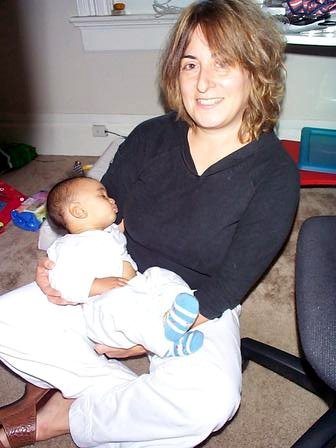Sevare, Mali 2002
Kate and I had just gotten back from trekking in Dogon country and were sitting at Mac's Refuge around the breakfast table. Mac, whose parents were American missionaries, had grown up in Dogon country and after some time in California had returned to Mali and built his hotel, an oasis in the harmattan haze of Sevare. Behind thick mud walls lay a round blue swimming pool and cozy rooms, beds with comfortable mattresses and quilts, a far cry from our past week sleeping wrapped in indigo cloth on chilly mud roofs by the Bandiagara escarpment.
For the past week we had been eating a diet of mostly pasta, tomato sauce, and onions as we trekked from village to village. So it was a huge relief to be sitting around a table eating scrambled eggs, toast, and pancakes with maple syrup and strawberry preserves. An American diplomat was saying how West Africa was not considered a prestigious post and England or France were really the plum assignments, but were only given to those with good political connections. Then the conversation segued into why Africans have so many children, and the diplomat told us that an average family would have twelve children and six would die. And having six children would ensure that the parents would be cared for in old age. So it was the sensible thing to do to start with twelve.
For the past week we had been eating a diet of mostly pasta, tomato sauce, and onions as we trekked from village to village. So it was a huge relief to be sitting around a table eating scrambled eggs, toast, and pancakes with maple syrup and strawberry preserves. An American diplomat was saying how West Africa was not considered a prestigious post and England or France were really the plum assignments, but were only given to those with good political connections. Then the conversation segued into why Africans have so many children, and the diplomat told us that an average family would have twelve children and six would die. And having six children would ensure that the parents would be cared for in old age. So it was the sensible thing to do to start with twelve.


2 Comments:
I'm always shocked to hear that kind of mortality rate, in this day and age...Your blog always reminds me what a truly sheltered life I've led.
Yes, it is shocking. I remember a discussion in Accra where a co-worker said that one reason it was so hard to get some villagers to care about AIDS was that there were so many other diseases one could die of: dysentary, typhoid, malaria, and so on. There is a saying in Ghana: "All die be die."
Post a Comment
<< Home